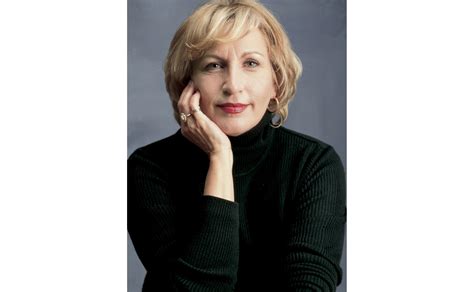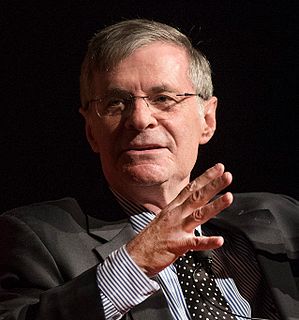A Quote by Erin Hunter
Fireheart tensed, waiting for whatever had hunted down these apprentices to emerge from the trees and attack, but nothing stirred. Feeling as if his legs hardly belonged to him, he sprang down and stumbled across to Swiftpaw. The apprentice lay on his side, his legs splayed out. His black-and-white fur was torn, and his body was covered with dreadful wounds, ripped by teeth far bigger than any cat's. His jaws still snarled and his eyes glared. He was dead, and Fireheart could see that he had died fighting.
Related Quotes
Fireheart dashed to the warrior's side. Cloudtail was standing stiff-legged, every hair in his pelt on end as if he were facing an enemy. His eyes were fixed on the limp heap of tabby fur huddled at his paws. "Why, Fireheart?" Cloudtail wailed. "Why her?" Fireheart knew, but rage and grief made it hard to speak. "Because Tigerstar wants the pack to get a taste of cat blood," he rasped. The dead cat lying in front of them was Brindleface.
[Fireheart] was interrupted by a screech from Cloudtail. "Fireheart! Fireheart, Brightpaw isn't dead!" Fireheart spun around and raced across the clearing to crouch beside Brightpaw. Her white-and-ginger fur, which, she had always kept so neatly groomed, was spiky with drying blood. On one side of her face the fur was torn away, and there was blood where her eye should have been. One ear had been shredded, and there were huge claw marks scored across her muzzle.
The master in the art of living makes little distinction between his work and his play, his labor and his leisure, his mind and his body, his information and his recreation, his love and his religion. He hardly knows which is which. He simply pursues his vision of excellence at whatever he does, leaving others to decide whether he is working or playing. To him he's always doing both.
Was his life nothing? Had he nothing to show, no work? He did not count his work, anyone could have done it. What had he known, but the long, marital embrace with his wife. Curious, that this was what his life amounted to! At any rate, it was something, it was eternal. He would say so to anybody, and be proud of it. He lay with his wife in his arms, and she was still his fulfillment, just the same as ever. And that was the be-all and the end-all. Yes, and he was proud of it.
His face set in grim determination, Richard slogged ahead, his fingers reaching up to touch the tooth under his shirt. Loneliness, deeper than he had never known, sagged his shoulders. All his friends were lost to him. He knew now that his life was not his own. It belonged to his duty, to his task. He was the Seeker. Nothing more. Nothing less. Not his own man, but a pawn to be used by others. A tool, same as his sword, to help others, that they might have the life he had only glimpsed for a twinkling. He was no different from the dark things in the boundary. A bringer of death.
This soldier, I realized, must have had friends at home and in his regiment; yet he lay there deserted by all except his dog. I looked on, unmoved, at battles which decided the future of nations. Tearless, I had given orders which brought death to thousands. Yet here I was stirred, profoundly stirred, stirred to tears. And by what? By the grief of one dog. Napoleon Bonaparte, on finding a dog beside the body of his dead master, licking his face and howling, on a moonlit field after a battle. Napoleon was haunted by this scene until his own death.
And Harry, with the unerring skill of the Seeker, caught the wand in his free hand as Voldemort fell backward, arms splayed, the slit pupils of the scarlet eyes rolling upward. Tom Riddle hit the floor with a mundane finality, his body feeble and shrunken, the white hands empty, the snakelike face vacant and unknowing. Voldemort was dead, killed by his own rebounding curse, and Harry stood with two wands in his hands, staring down at his enemy's shell.
He could feel it immediately when his shoulder snapped - the intense pain of his bones cracking. His skin tightened, as if it could no long hold whatever was lurking inside him. The breath was sucked from his lungs like he was being crushed. His vision began to blur, and he had the sensation he was falling, even though he could feel the rock tearing at his flesh as his body seized on the ground.
But never had he felt more enthralled than he was right now, sitting beside Evie on a weathered old dock, with a blazing afternoon sun, almost brutal in its clarity, bathing everything in pure light. Sweat trickled down his back and chest from the steamy heat, and his entire body pulsed with life. Even his fingertips throbbed. It took all of his formidable self-control to prevent himself from pushing her down on the dock and spreading her legs for his entry.
On those occasions when he had killed in the dark, he later needed to see his victims' faces because, in some unlit corner of his heart, he half expected to find his own face looking up at him, ice-white and dead-eyed. "Deep down," the dream-victim had said, "You know that you're already dead yourself, burnt out inside. You realize that you have far more in common with your victims after you've killed them than before.































